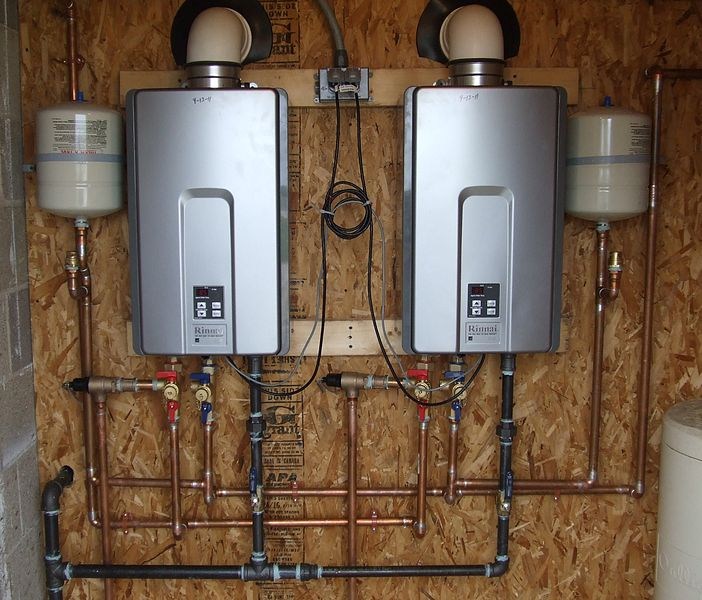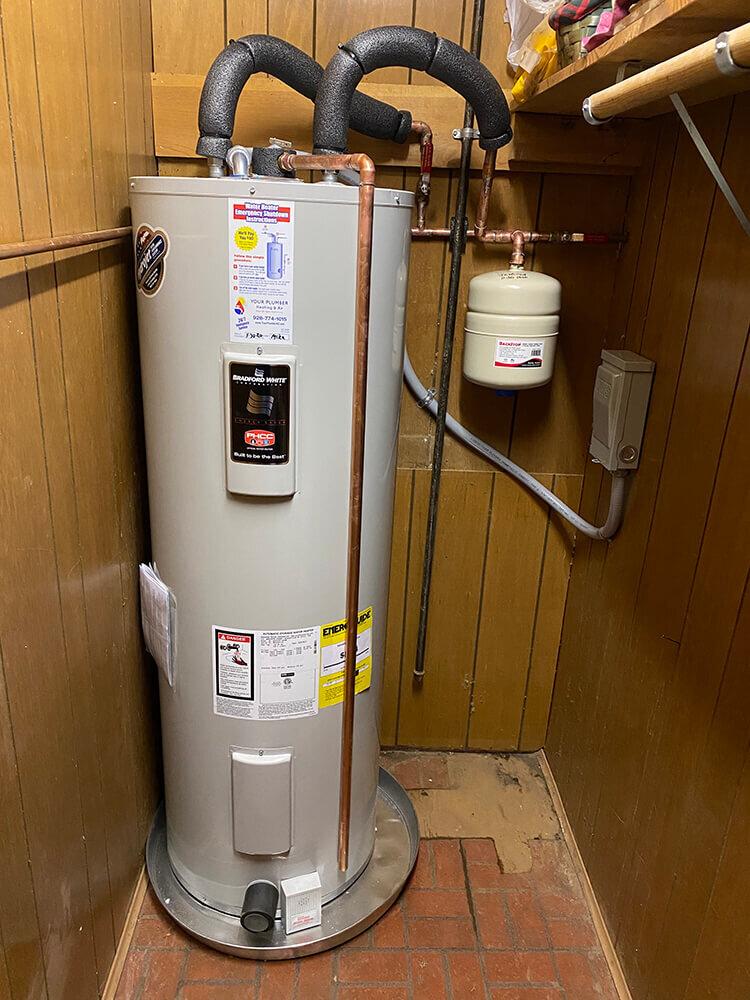Fast and Reliable Pipe Repair to Resolve Leaks and Return Functionality
Fast and Reliable Pipe Repair to Resolve Leaks and Return Functionality
Blog Article
Full Guide to Water Heating SystemInstallation and Substitute
Recognizing the ins and outs of water heating unit installment and substitute is critical for home owners seeking to make sure performance and integrity in their hot water supply. From selecting the ideal type and dimension to implementing a smooth installment procedure, several aspects have to be considered to prevent typical risks.
Types of Water Heaters
When considering water heater installment and replacement, it is vital to understand the numerous kinds of water heating units available in the market. One of the most usual types include container hot water heater, tankless hot water heater, heatpump water heating systems, and solar water heating units.
Container hot water heater are conventional systems that save a specific quantity of warm water, making them readily offered when needed. They are generally much less costly in advance but may incur higher energy costs over time due to heat loss. On the other hand, tankless hot water heater provide warm water on demand, getting rid of the requirement for storage. They are energy reliable and can save area, but their preliminary expenses are typically greater.
Warm pump water heating systems utilize electrical energy to move heat from the air or ground to warm water, supplying significant power savings however requiring more area and specific installation problems. Solar water heating units harness solar power to warmth water, giving an eco-friendly option with potential long-term price financial savings, although they often call for a back-up system for over cast days.
Comprehending these options ensures educated choices pertaining to setup and replacement, satisfying details demands and preferences.
Selecting the Right Size
Selecting the ideal dimension for a hot water heater is important to make sure ideal efficiency and performance. A device that is as well little will battle to meet home demands, bring about inconsistent warm water schedule and raised power usage. Conversely, a large water heater can cause unnecessary power waste and greater utility costs.
To figure out the right dimension, take into consideration the family's peak hot water use. This can be determined based upon the number of passengers and their regular warm water demands. A family members of four may need a water heater with an ability of 50 to 80 gallons, depending on the usage patterns, such as simultaneous showers and washing.
Additionally, examine the healing rate, which measures how rapidly a heating system can replenish warm water after it has been used. For tankless versions, emphasis on the flow price, gauged in gallons per minute (GPM), to guarantee it fulfills the house's synchronised demand.

Setup Refine Summary

Next, the old device should be separated and eliminated, making sure to comply with local codes and guidelines concerning disposal. As soon as the old system is out, the brand-new water heating system can be positioned in position. This step entails linking the water supply lines, guaranteeing that all fittings are leak-free and safe and secure.
After developing water links, it's necessary to connect the power supply, whether electrical or gas, following the maker's guidelines carefully. As soon as all connections are made, the system should be loaded with water, and the power can be turned back on. It's vital to check for leaks and guarantee the water heating system is functioning correctly before finishing the installment procedure.
Common Installation Errors

An additional frequent mistake is ignoring to comply with neighborhood codes and regulations. Failing to adhere to these requirements can not just lead to safety and security hazards but may likewise result in pricey fines or the need for expensive reinstallation.
Inaccurate plumbing connections are also More Info a widespread error. Stopping working to safeguard links or making use of the incorrect sort of installations can bring about leakages and water damages. Neglecting the significance of an appropriate drain pan can result in significant water damages if leakages do happen. Poor insulation of pipelines can lead to heat loss, decreasing effectiveness. By preventing these typical setup mistakes, property owners can ensure their hot water heater runs safely and effectively, making best use of efficiency and durability.
Upkeep Tips for Durability
Correct maintenance of a water heater is crucial for its durability and optimum efficiency. Regular examinations and servicing can protect against expensive repairs and expand the appliance's life-span. Begin by checking the temperature level setting; it needs to normally be set in between 120 ° F and 140 ° F for ideal power performance and safety.
Every 6 months, flush the tank to get rid of sediment accumulation, which can impair home heating performance and trigger corrosion. To do this, shut off the heating unit, link a hose to the drain shutoff, and let the water run till it is clear.
Anode rods must be inspected yearly and changed when they are worn away. These rods assist protect against tank corrosion by drawing in harsh elements in the water.
Furthermore, discover here examine the pressure safety valve consistently to ensure it is working appropriately. This valve is crucial for preventing extreme stress build-up within the storage tank.
Finally, think about setting up a professional maintenance check every few years for complete evaluations and maintenance. By adhering to these upkeep tips, property owners can dramatically improve the performance, safety and security, and lifespan of their water heating systems, guaranteeing dependable hot water for many years ahead.
Conclusion
In verdict, appropriate installment and maintenance of water heating systems are vital for making certain efficiency and longevity. By recognizing these crucial elements, homeowners can achieve a reputable warm water supply while lessening possible concerns connected to water heating unit procedure.
Comprehending the details of water heating system installment and substitute is vital for house owners seeking to make certain go to my site performance and dependability in their hot water supply.Storage tank water heating systems are traditional systems that keep a details quantity of hot water, making them readily offered when required. In comparison, tankless water heaters offer hot water on need, removing the demand for storage. Choosing a water heating system that is either as well tiny or also large can lead to inadequacies, resulting in inadequate hot water supply or too much energy usage.
By recognizing these vital aspects, home owners can attain a trusted hot water supply while decreasing potential problems related to water heating unit operation. pipe repair.
Report this page